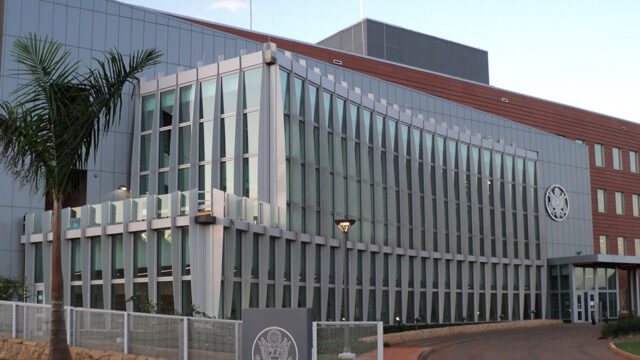
U.S. Embassy Mbabane, Eswatini
The United States and Eswatini have enjoyed good bilateral relations since Eswatini’s independence from the United Kingdom in 1968 and its initial establishment as a constitutional monarchy under King Sobhuza II. In 2005, under King Mswati III, the country implemented a new constitution and now calls itself a “monarchical democracy.” In reality, political power remains almost entirely vested with the king and traditional structures. King Mswati III and Queen Mother Ntombi, the king’s mother, rule as co-monarchs and exercise ultimate authority over the cabinet, legislature, and judiciary. Governmental structures include a cabinet led by a prime minister (who is appointed by the king), a bicameral parliament consisting of the Senate and House of Assembly, and a dualistic judicial system, with both constitutional and traditional courts. U.S. policy seeks to maintain and strengthen bilateral relations and stresses Eswatini’s need for continued political and economic reform. Eswatini is the last country in Africa to maintain diplomatic relations with Taiwan.
Eswatini ranks as a lower-middle income country, but the World Bank estimates that 58.9% of the population lives below the national poverty line. The U.S. Government supports: health promotion and health systems; strengthening transparent and accountable governance and the rule of law; protection and promotion of human rights; increased economic inclusion and empowerment; entrepreneurship; youth development and education; security sector capacity-building; climate adaptation and resilience; and trade promotion in Eswatini.
Eswatini is a small country (slightly smaller than New Jersey) with a population of 1.2 million and a market heavily dependent on international trade. In January 2018, Eswatini regained eligibility for preferential trade benefits under the African Growth and Opportunity Act (AGOA) after enacting legislation and reforms related to freedom of assembly, association, and expression, as well as internationally accepted workers’ rights. Eswatini is currently a member state of the Common Market for Eastern and Southern Africa (COMESA – 639 million people), the Southern Africa Development Community (SADC – 389 million people), and the Southern African Customs Union (SACU – 69 million people), which signed a Trade, Investment, and Development Cooperative Agreement (TIDCA) with the United States. TIDCA establishes a forum for consultative discussions, cooperative work, and possible agreements on a wide range of trade issues, with a special focus on customs and trade facilitation, technical barriers to trade, sanitary and phytosanitary measures, and trade and investment promotion. The country also benefits from its quota of sugar that may be imported to the U.S. at the preferential in-quota tariff. Several U.S. companies operate in Eswatini, including Coca-Cola, Kellogg’s, and Mondelez.
Today the U.S. embassy is in Mbabane.
Map Link:
Source:
United States Department of State, Office of the Historian and Bureau of African Affairs
Social Links:
https://www.facebook.com/usembassy.eswatini